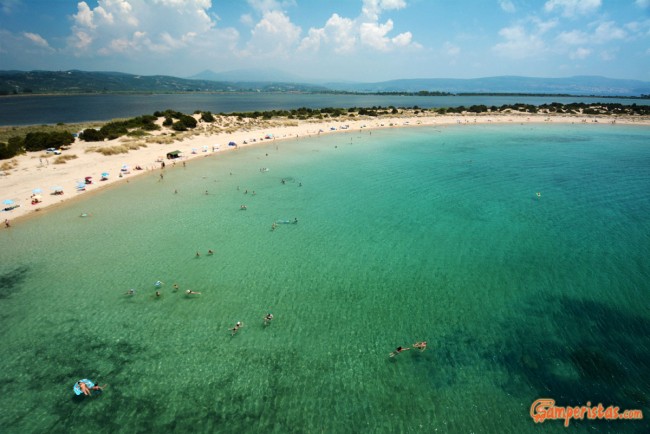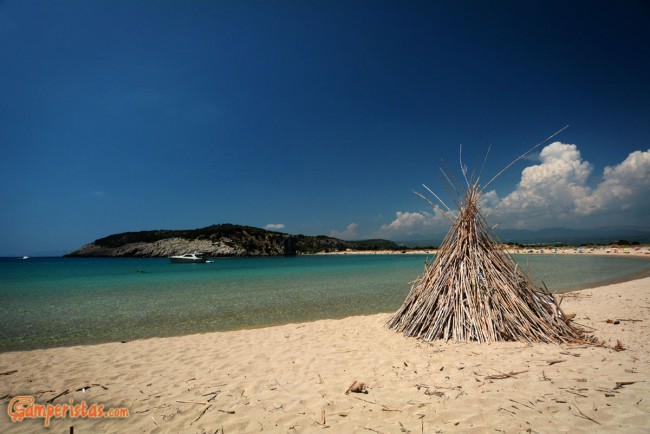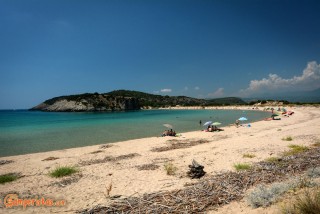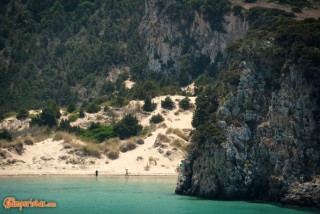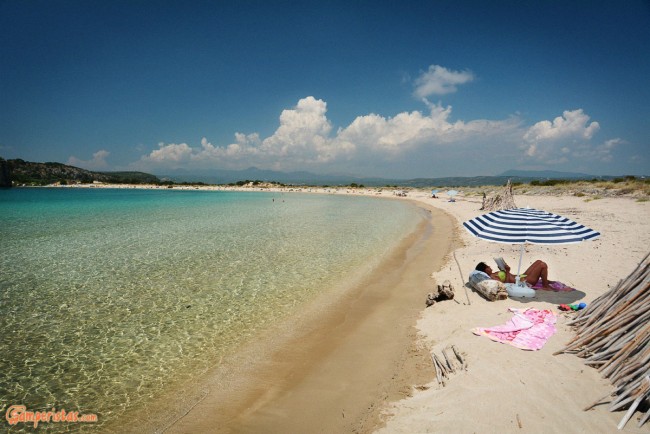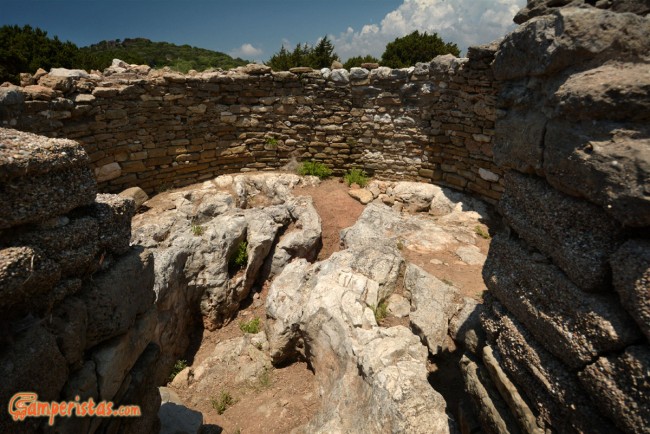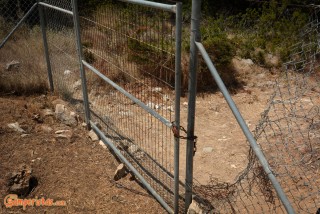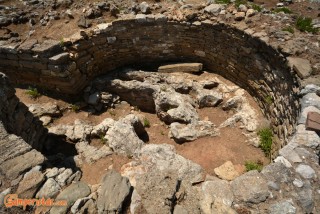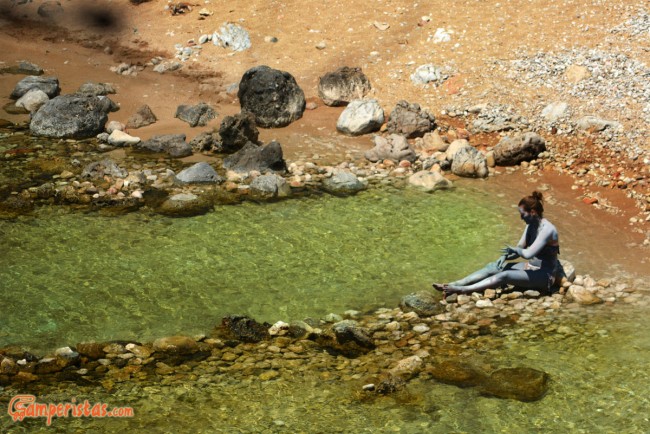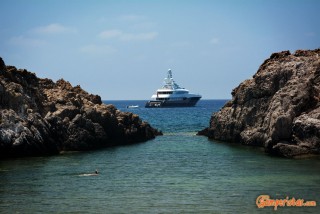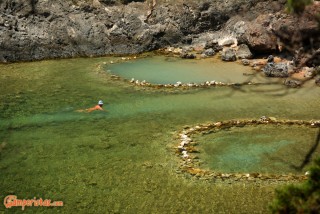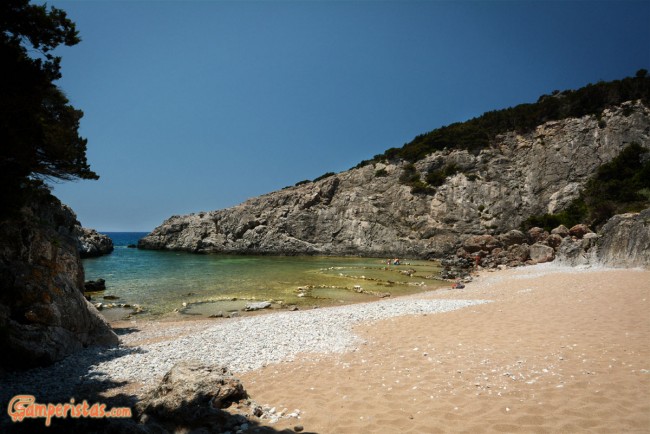
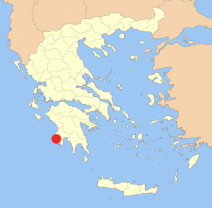 Voidokilia is rightly considered one of the most beautiful beaches in Europe. Apart its extreme natural beauty, the beach is totally unspoiled; no construction is allowed near the beach, being part of a protected wildlife reserve. Of course it’s very popular during the peak season, but fortunately the crowds prefer to gather next to the parking lot. A few hundred meters afar there’s always a secluded strand of white sand. And there’s more!
Voidokilia is rightly considered one of the most beautiful beaches in Europe. Apart its extreme natural beauty, the beach is totally unspoiled; no construction is allowed near the beach, being part of a protected wildlife reserve. Of course it’s very popular during the peak season, but fortunately the crowds prefer to gather next to the parking lot. A few hundred meters afar there’s always a secluded strand of white sand. And there’s more!
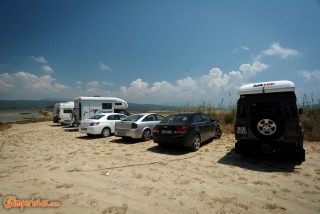 The last meters of the road to the main parking area [36.96594, 21.6612] are not paved, but they are easily passable by any vehicle.
The last meters of the road to the main parking area [36.96594, 21.6612] are not paved, but they are easily passable by any vehicle.
To welcome the camper vans there is a ‘cute’ sign explaining that free camping is prohibited. This sign has absolute no meaning if you behave responsibly (no tents, no tables, no swimsuits laid out to dry). In other cases you can also spend the night if you don’t break the law but Voidiokilia has a peculiarity: the fact that the area is a natural park means that the overnight stay is prohibited. I know that many camper owners spend the night there but I personally don’t advise you do this. If you insist, it is better to avoid the parking lot, to keep on the dirt road and to find a sheltered corner. Pay attention not to get stuck in the sand…
There are not enough words to describe the beauty of the beach. The sea bed is a mixture of white sand and coral shells. Walking toward the southern part you will encounter less and less people. Even in high season it is easy to find some privacy.
For those who want to venture a little further, there is a nice walk to the hill overlooking Voidokoilia beach. Following the signs from the car park you climb the sand dune and get to the archaeological site on top of the hill. It is a Mycenaean tomb, fenced, but as it often happens, a gap in the network makes the access possible. The view on the beach is gorgeous.
We had been in Voidokilia numerous times but this time we discovered something new! Following another path from the top of the hill we came on the beach called “Glossa” (Tongue). It’s a small creek frequented by very few people; the seawater in the small ponds is extremely hot and you can find argil mud too. It’s an unexpected paradise …

